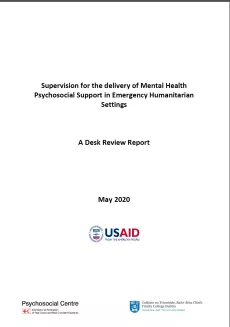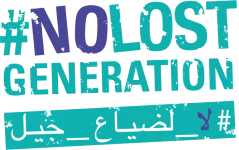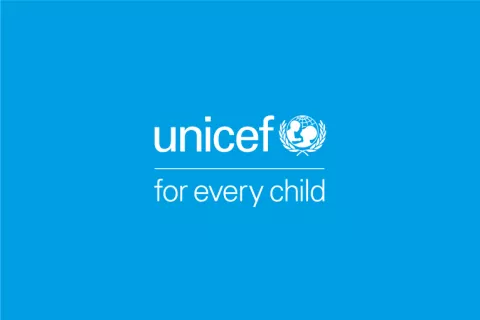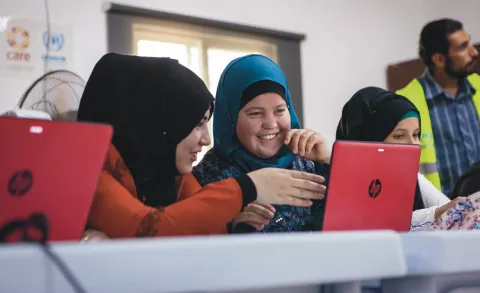Supervision for the delivery of mental health psychosocial support in emergency humanitarian setting
USAID, International Federation of Red Cross and Red Crescent Societies and Trinity College Dublin
Highlights
Human resources constitute a vital component of any health care system and represent an important asset in the delivery of mental health and psychosocial support (MHPSS) services. The success of any MHPSS intervention relies heavily on the capacity, wellbeing, competence and motivation of its workforce to promote mental health and psychosocial wellbeing and provide support for people with mental health, psychosocial and protection needs. A well-trained and supervised, culturally sensitive and competent MHPSS workforce, including volunteers, is therefore essential if services are to meet internationally recognised standards of care to safely provide MHPSS in emergency settings. Supervision is considered especially important in the delivery of MHPSS interventions and wellbeing of staff and features as a key recommendation in all major international guidelines on MHPSS in emergency and non-emergency settings.
Despite its noted importance, there remains a gap in provision of supervision within MHPSS and protection programmes in humanitarian contexts, which has been referred to as one of the most challenging aspects and unmet needs in programme implementation. It should also be emphasized that there is often confusion differentiating between managerial supervisory roles and supervision that is focused on the growth and development of the MHPSS worker. In this regard, generic inter-agency supervision tools for use by IASC Reference Group members and the international MHPSS community have yet to be developed.
Against this background, it is perhaps surprising that the promotion of supervision to develop effective MHPSS skills and knowledge within emergency settings currently remains overlooked. While narrow in scope, in terms of the target audience (Case Managers), much of the guidance is applicable in MHPSS and protection contexts. Without additional guidance and studies on the impact of supervision however, it is hard to comprehend and ascertain the impact and significance of supervision on the quality and scalability of MHPSS programming.
In this context, the aim of the present desk review is to report on the current evidence available for MHPSS supervision. First, we review existing definitions of supervision and summarise the different approaches used to deliver supervision. Best practices in supervision and current barriers and challenges to conducting supervision are also discussed. Finally, identified gaps in MHPSS supervision are used to propose future opportunities to strengthen the availability and accessibility of MHPSS supervision going forward.



